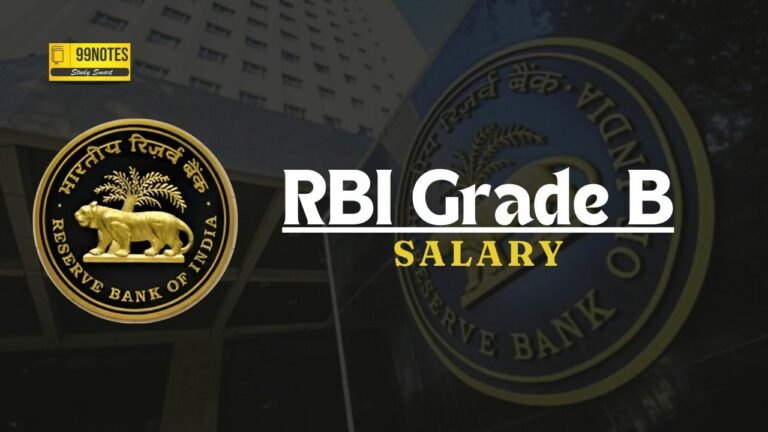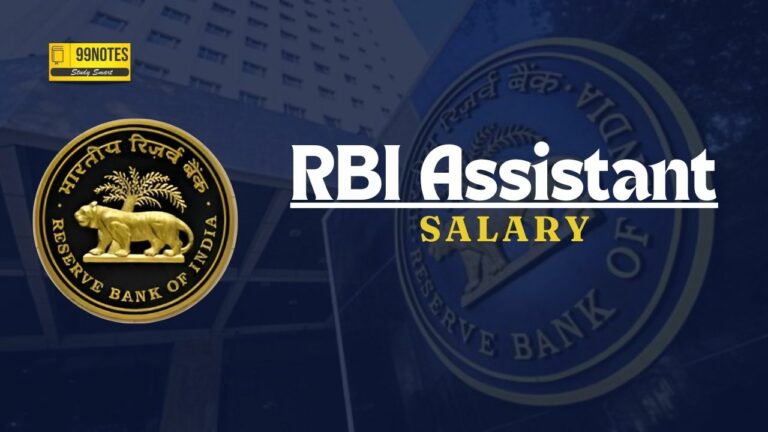Police Inspector Salary in India 2024
Police Inspector Salary: The starting salary of a police inspector in India is between 56,100 to 1,77,500 per month depending on 7th pay commission and it also includes various things like basic salary, grade pay, house rent and travel allowance. Specific city compensation may vary based on posting, years of service, special eligibility bonuses and other factors and the police inspector salaries provided a decent starting salary with opportunities for long-term advancement and other benefits, making for an attractive career.
Police Inspector Salary Per month
The Police Inspector salary in India varies depending on factors such as state, city, years of service and special allowance. According to the 7th Pay Commission, the starting monthly salary of a police inspector in India ranges from INR 56,100 to INR 1,77,500.
UP Police Inspector Salary As Per 7th Pay Commission
According to the 7th Pay Commission, it may vary depending on various factors like location, benefits and years of service and the salary of a UP police inspector ranges between 56,100-1,77,500 per month. This includes basic salary, grade pay, other allowances (approximately 17% of basic salary), accommodation rent , travel allowances.
| Police Inspector Salary As Per 7th Pay Commission | |
| Component | Amount (INR) |
| Basic Pay | 56,100 – 1,77,500 |
| Grade Pay | 6,600 |
| Dearness Allowance (17%) | 9,537 – 30,075 |
| House Rent Allowance (24%) | 13,464 – 33,000 |
| Transport Allowance | 3,600 – 7,200 |
| Other Allowances | Varies |
| Total Approximate Salary | 89,301 – 2,46,375 |
Perks and Allowance as a Police Inspector
Following are the most common benefits and advantages of Police Inspector give below;
- Salaries and Compensation: Police Inspectors officers receive competitive salaries and various benefits such as allowances, housing and travel badges.
- Job Security : Working in the public sector, as a police patrol officer, provides strong job security with regular pay and benefits.
- Health Benefits: Researchers generally get health insurance and insurance for themselves and their families.
- Retirement and pensions: After you retire, police inspectors can take a benefit of pension and they are eligible for pensions and other benefits.
- Housing Services: Some police departments provide housing services or assistance.
- Education and Training: Continuing education and skills development programs are provided to promote professional development as a Police Inspector.
- Recognition and Awards: Outstanding performance earns recognition, awards and career opportunities as a Police Inspector.
- Social status: Being a police inspector in the community gives you some social respect and recognition.
- Work-life balance: Depending on the department, there may be adequate schedules and time. It is useful in detail.
- Resources: Police Inspectors may use resources such as vehicles, communication equipment and other means necessary to carry out the obligations of the law
UP Police Post- Wise Salary Structure
| Post | Salary Range (INR) |
| Director General of Police (DGP) | 2,25,000 – 2,25,000 |
| Additional Director General of Police (ADGP) | 1,82,200 – 2,24,100 |
| Inspector General of Police (IGP) | 1,44,200 – 2,18,200 |
| Deputy Inspector General of Police (DIG) | 1,31,100 – 2,16,600 |
| Senior Superintendent of Police (SSP) | 78,800 – 2,11,500 |
| Superintendent of Police (SP) | 78,800 – 2,11,500 |
| Additional Superintendent of Police (ASP) | 67,700 – 2,08,700 |
| Deputy Superintendent of Police (DSP) | 56,100 – 1,77,500 |
| Inspector | 56,100 – 1,77,500 |
| Sub-Inspector (SI) | 35,400 – 1,12,400 |
| Assistant Sub-Inspector (ASI) | 29,200 – 92,300 |
| Head Constable | 25,500 – 81,100 |
| Constable | 21,700 – 69,100 |
Promotion Rules in Police Inspector
The promotion rules of Police Inspector can be summarized in various factors as follows.
- Basis for promotion: Often on the basis of seniority, researchers with many years of service are promoted to senior positions.
- Performance Evaluation: Based on the promotions, analysts are evaluated on their performance in these tasks and responsibilities.
- Educational Qualifications: The requirements may require completion of training programs and courses.
- Availability of Posts: It is also based on the availability of high quality posts. at the police station.
- Qualifications: Meeting educational and experience requirements established by the department is essential for promotion.
Roles and Responsibilities of Police Inspector
The Police Inspector officer has many duties and responsibilities necessary to maintain law and order given below;
- Enforcement: The role of Police inspector involves Enforce laws and regulations and ensure that individuals and businesses comply with legal requirements.
- Investigation: Inspectors lead criminal investigations. They gather evidence, interview witnesses, and investigate cases to solve crimes.
- Monitoring: Inspectors supervise subordinate police officers and ensure they do their jobs properly and follow procedures.
- Patrolling: Inspectors participate in patrol operations, patrol routes and the area crime prevention and emergency.
- Community Involvement: Communicate with the community, participate in events and work with community organizations to promote safe crisis management programs.
- Education: Researchers provide training and mentoring to junior officers to help them develop essential skills . For legislators.
- Report Writing: Prepares detailed reports of incidents, investigations and arrests and records important information for legal and business purposes.
- Court: Investigators may present evidence and witnesses related to the crime and testify in court.
The roles and responsibilities work together to maintain public safety, prevent crime, and foster positive relationships between law enforcement and the community as a Police Inspector.
How to Become a Police Inspector in India?
The following are some ways to become a Police Inspector in India:
1. Education requirements: Complete a bachelor’s degree in any discipline from a recognized university and other countries may have specific educational requirements.
2. Police Service Eligibility Exams: Aspiring police inspectors must clear an entrance examination conducted by the state’s Public Service Commission or the Staff Selection Commission. This exam generally consists of written tests, physical tests, and an interview.
- Written Test: Usually consists of papers on general knowledge, law, mathematics, and language skills.
- Physical Test: Tests physical fitness and endurance.
- Interview: Assesses personality, communication skills, and suitability for the role.
3. Exam passed: Complete preliminary training, basic study and interview as part of SPSC program.
4. Training: Those who clear all the stages are then recruited as sub-inspectors or direct Inspector.
5. Promotion: There is another way to become an police inspector is through promotion. Experienced Sub inspectors are promoted to the rank of Police Inspector. Promotion route:
Police Constable - Senior Constable- Police Head Constable- Assistant Sub Inspector (ASI)- Sub-Inspector (SI)- Police Inspector.
6. Ongoing learning: Keep abreast of changes in regulatory policy, attend workshops and complete additional training or specialized courses. It improves skills and knowledge.
Conclusion
The salary of Indian Police Inspectors is ranging from INR 56,100 to INR 1,77,500 per month as per the 7th Pay Commission reflects the recognition and responsibility that accompanies this important role in law enforcement. While salary varies depending on factors such as location and years of service, it often includes benefits such as basic salary, grade pay, agency allowance, house rent etc. This compensation system meets demand for work, provides financial stability and incentives for police investigators to perform their duties effectively and contributes to the maintenance of law and order in society.





